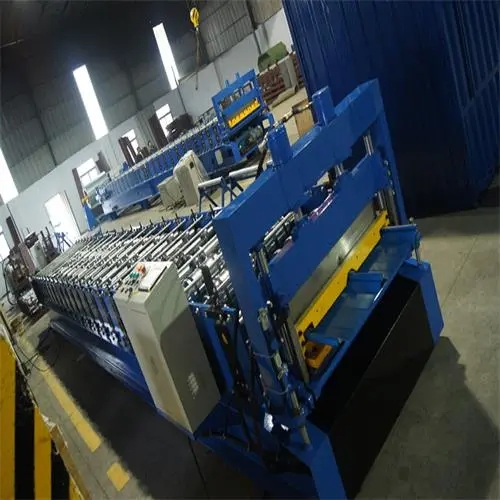
The Role of EPS Sandwich Panel Making Machine in Modern Construction
In the evolving landscape of modern construction, efficiency, sustainability, and innovation are at the forefront of architectural development. One notable advancement that has emerged is the EPS (Expanded Polystyrene) sandwich panel making machine. This technology has revolutionized the way building materials are manufactured, offering numerous benefits in terms of speed, cost-effectiveness, and thermal insulation properties.
Understanding EPS Sandwich Panels
EPS sandwich panels consist of two outer layers, typically made of steel, aluminum, or other solid materials, with a core of EPS foam in between. This configuration is not only lightweight but also provides excellent thermal insulation. The combination of the rigid facings and the insulative core allows these panels to be used in a variety of applications, from residential to industrial buildings.
Efficiency in Production
The EPS sandwich panel making machine is designed to streamline the production process. These machines automate the mixing, molding, and cutting of EPS materials, significantly reducing labor costs and production time. Traditionally, producing such panels required extensive manual labor and time-consuming processes. However, with modern machinery, manufacturers can produce large quantities of panels quickly and efficiently.
The machines can be customized to produce panels of varying thicknesses and densities, adapting to different building requirements. This flexibility not only enhances efficiency but also caters to the diverse needs of builders and architects.
Cost-Effectiveness
One of the primary advantages of using EPS sandwich panels is their cost-effectiveness. The sandwich panels reduce the need for multiple layers of materials, which translates to lower construction costs. The efficient production methods enabled by sandwich panel making machines further decrease expenses by minimizing waste and optimizing resource use.
Additionally, the lightweight nature of EPS panels leads to savings in transportation and installation costs. Since these panels are easier to handle and install compared to traditional materials, labor costs are reduced, leading to significant overall savings for construction projects.

Environmental Sustainability
Sustainable construction practices are becoming increasingly important in today's world. EPS is a recyclable material, and the use of EPS sandwich panels contributes to reduced waste. The manufacturing process of these panels is also designed to be eco-friendly, emphasizing minimal energy consumption.
Furthermore, the excellent thermal insulation properties of EPS panels lead to energy-efficient buildings. By reducing the need for heating and cooling systems, they contribute to lower energy consumption and, consequently, a reduced carbon footprint. This aligns with the global movement toward greener building practices aimed at combating climate change.
Diverse Applications
The versatility of EPS sandwich panels is one of their most appealing features. They can be used in various construction projects, including residential buildings, commercial properties, warehouses, and cold storage facilities. The panels can be tailored to meet specific aesthetic and functional requirements, making them suitable for a wide range of architectural designs.
In addition to walls, EPS sandwich panels can also be used for roofing, flooring, and insulation purposes. This adaptability makes them a preferred choice among builders and developers looking for integrated solutions that address multiple aspects of construction needs.
Conclusion
The EPS sandwich panel making machine represents a significant advancement in the construction industry. By facilitating the efficient, cost-effective, and sustainable production of building materials, this technology is paving the way for modern architectural practices. As the demand for eco-friendly and innovative building solutions continues to grow, the role of EPS sandwich panels is likely to expand, providing a formidable alternative to traditional construction materials.
In conclusion, embracing EPS sandwich panels not only aligns with contemporary construction trends but also contributes to a more sustainable and efficient building future. Whether for residential or commercial applications, the advantages of using EPS sandwich panels influenced by cutting-edge manufacturing techniques are undeniable, making them a cornerstone of modern construction methodologies.